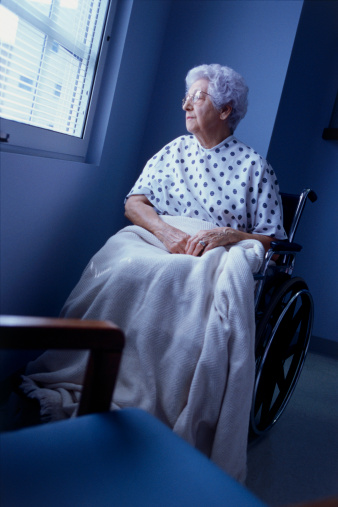
We hear about nursing home abuse every time shocking footage of caregiver attacks and negligence surfaces on the nightly news, but according to the National Center on Elder Abuse as well as the Office of the Attorney General of Arizona, most cases of such abhorrent treatment of older peoples continues to rarely be reported to the authorities. The problem persists across the entire country but in states like ours where the elderly population exceeds 10 percent of the total, the need for increased exposure placed on these tragic incidents is more pressing. It’s an objective we can all agree to, but one which can only be met if we equally agree to take part in doing something about it.
Before we get to the solutions, let’s take a hard look at the specifics of the problem. According to the attorneys at Garcia Law, who focus exclusively on elder abuse cases, the abuse is usually rooted in one of four areas. Taking up almost 60% of known cases are accusations of neglect, wherein caregivers were not providing resources and services to residents at the cost of their health and well-being. 16% of cases involve claims of physical abuse. 13% involve financial exploitation, wherein residents are coerced or tricked into paying for resources and services they either don’t get or don’t need. The remaining 12% of clients cite emotional and sexual abuse, unkempt facilities, and outright fraud for why they seek retribution and justice.
But why the overwhelming lack of reporting? The NCEA states that only one in 14 abuse cases ever get exposed to the eyes of authorities. Part of the reason is an unfortunately pervasive sentiment among victims of neglect and violence: folks tend to naturally blame themselves for being treated poorly by others and see only shame as an outcome of making a report. Another element at play, common among victims, is thinking the claim won’t be believed. Making a report only for nothing to happen afterwards makes many elders facing abuse think twice about complaining about a caregiver they will continue to interact with, out of fear of reprisal.
Perhaps the biggest reason why elder care abuse continues to be a mostly unseen crime is the fact that many of the victims are individuals with decreased cognitive abilities. The older one is, the more likely they are to be a sufferer of Alzheimer’s, dementia, or Parkinson’s disease, conditions which slowly rob us of our self-control and self-awareness. In some realm of their consciousness many abused elders may be crying out for help; they simply aren't able to make it known to those who care for them.
So what can be done? First off, those of us who already have loved ones living in nursing homes ought to explain to those of us who don’t that this is an issue bound to affect us all at some point. The number of elderly Americans is increasing while household incomes and home ownership numbers are stagnating. This means sooner or later we will likely all have a parent, grandparent, aunt or uncle living in a nursing home. Eventually we may wind up in one ourselves. Do they want to fight for changes when they or their loved ones arrive, or have the battle already won by the time they get there?
Yet what about the boots-on-the-ground strategy? Awareness is great but we need action. It’s ultimately a matter of observation of, communication with, and dedication to, our loved ones in nursing homes. Don’t shrug off a change in your loved one’s behavior. If you ask about an out-of-place wound or bruise, don’t accept a story that doesn't sound right. Make a habit of Google-searching the facility for existing abuse cases pending against them. If you have a loved one with decreased cognitive function you think is being treated poorly but unable to tell you, place a hidden camera in their room to monitor the behavior of their caregivers.
And lastly, do not hesitate to seek out the right public servants and legal experts if you believe a loved one is being treated poorly by nursing home staff. There’s only one way to reverse the trend of elder abuse under-reporting and it’s for the elderly, and their families especially, to step up and be the agents of change themselves.
